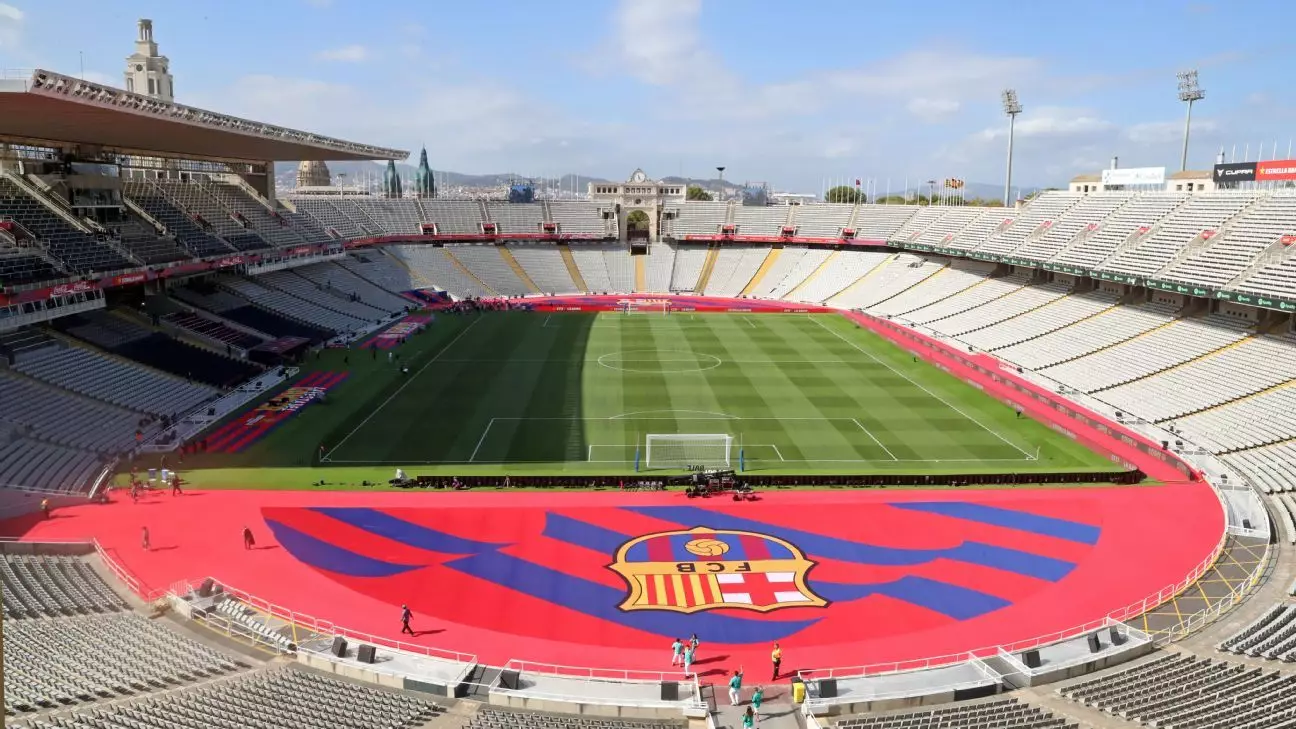FC Barcelona’s recent decision to request an extension of their lease at the Olympic Stadium highlights a critical juncture for the club amid ongoing renovations at their iconic Camp Nou. Originally hoping to return to their home ground last November, the club has now confirmed that the renovation timeline has pushed their return date to May. As these plans have unfolded, the club must ensure that they have adequate arrangements in place to fulfill their league commitments, particularly with high-stakes matches like the Clásico against Real Madrid looming on the horizon.
The renewal request is pivotal as it addresses the potential crisis of not having a venue for their final home games, should the renovations not be completed in time. The fact that their lease at the Olympic Stadium was set to expire at the end of April raised crucial concerns that needed immediate resolution. Complications arose from a schedule of concerts at the stadium, but the postponement of these events has now created an opportunity for Barcelona to extend their stay.
The Implications of the Clásico Venue
The significance of the Clásico cannot be overstated, as it is not just another fixture but a monumental highlight of the football calendar. Reports suggesting that the match might have to be relocated abroad indicated the gravity of the situation. With matches scheduled against Real Madrid on May 11 and Villarreal on May 18, securing a venue becomes indispensable. If the lease extension is granted, it would also eliminate the uncertainty of having to arrange an alternative location at such short notice, ensuring that fans can celebrate one of football’s fiercest rivalries in a familiar setting.
Barcelona’s latest statement emphasizes their desire to play at Camp Nou as soon as possible while acknowledging the necessity of the Olympic Stadium if circumstances dictate. This balanced approach exemplifies the club’s forward-thinking strategy while reaffirming their commitment to their supporters and the larger football community.
Looking Ahead: The Future of Camp Nou
While the prospect of returning to Camp Nou is highly anticipated, the reality is that it will not be fully operational upon reopening. Initial attendance is projected to be capped at around 60,000 due to ongoing construction, a far cry from the enhanced capacity expected post-renovation. By the summer of 2026, Camp Nou is set to reclaim its status as one of the largest stadiums in Europe, with a capacity of approximately 105,000 spectators.
With such significant upgrades in the pipeline, Barcelona not only plans to enhance the matchday experience for fans but also aims to solidify their financial footing and global stature in the footballing world. However, as they navigate through this transitional phase, the club must continue to perform on the pitch, as evidenced by recent player movements, including the transfer of talented attacking midfielder Unai Hernández to Al Ittihad for an initial fee of €4.5 million. This shows that while the focus remains on infrastructure, building a competitive team is equally vital.
Barcelona’s request to extend their lease at the Olympic Stadium is more than just a logistical formality; it is a strategic maneuver that speaks volumes about the club’s resilience and adaptability in the face of challenges. The decisions made today will resonate far beyond immediate concerns, potentially shaping the future of one of the most celebrated clubs in football history.

Leave a Reply